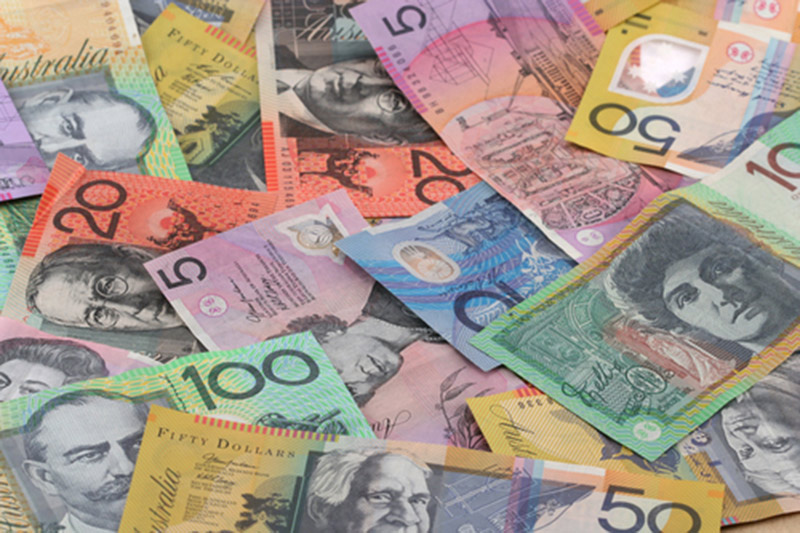Investing.com - The Australian dollar fell sharply after central bank board meeting minutes for June released on Tuesday took a more dovish view of the economy and inbound investment into China unexpectedly slumped in May.
The Reserve Bank of Australia appeared to tilt toward a dovish stance in its latest minutes from the June board meeting released on Tuesday.
The RBA tweaked its language to highlight uncertainties which "were likely to take some time to resolve." It is "difficult to judge the extent to which this (low interest rates) would offset the expected substantial decline in mining investment and the effect of planned fiscal consolidation."
In China, May actual foreign direct investment fell 6.7%, from a gain of 5.0% year-on-year in April.
AUD/USD traded at 0.9365, down 0.37%, after the data.
Overnight, the dollar traded largely lower against most major currencies due to uncertainty the effects the Iraq insurgency will have on U.S. recovery, while an International Monetary Fund decision to trim its U.S. 2014 growth rate weakened the greenback as well.
In Asia, USD/JPY 102.03, up 0.19%, after the China data.
Concerns over the ongoing Sunni insurgency in Iraq continued to weigh on the dollar Monday by stoking fears that the escalating conflict could dampen global recovery, especially if the violence disrupts Iraqi oil exports, hikes prices at U.S. gasoline pumps and waters down the economy.
Elsewhere, news that the International Monetary Fund trimmed its 2014 U.S. economic growth forecast due to a harsh winter and a “still-struggling housing market” softened the greenback as well.
The IMF said it now expects the U.S. economy to expand 2% in 2014, down from its forecast of 2.8% in April.
Positive U.S. data meanwhile did little to boost the greenback.
The Federal Reserve Bank of New York reported earlier that its general business conditions index increased to 19.28 this month from 19.01 in May. Analysts had expected the index to decline to 15.0.
A separate report showed that U.S. industrial production rose by 0.6% last month, beating forecasts for a 0.5% gain.
Meanwhile across the Atlantic, Eurostat reported earlier that the euro zone's consumer price index rose 0.5% last month, in line with expectations and unchanged from a preliminary estimate. Euro zone inflation rose by 0.7% in April.
Still, the rate remains firmly below the European Central Bank's target of near but just below 2%, which capped the single currency's advance.
The US Dollar Index, which tracks the performance of the greenback versus a basket of six other major currencies, rose 0.07% at 80.61.
On Tuesday, the U.S. is to produce data on housing starts, building permits and consumer prices, while investors will be eager for Wednesday's statement from the Federal Reserve on interest rates and monetary policy.
